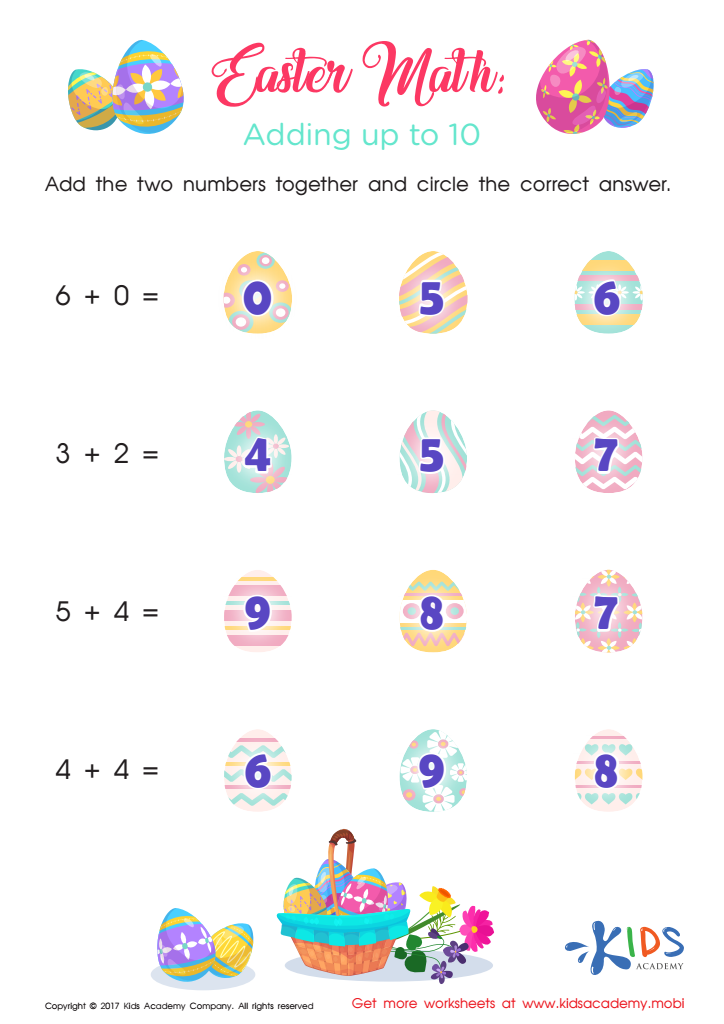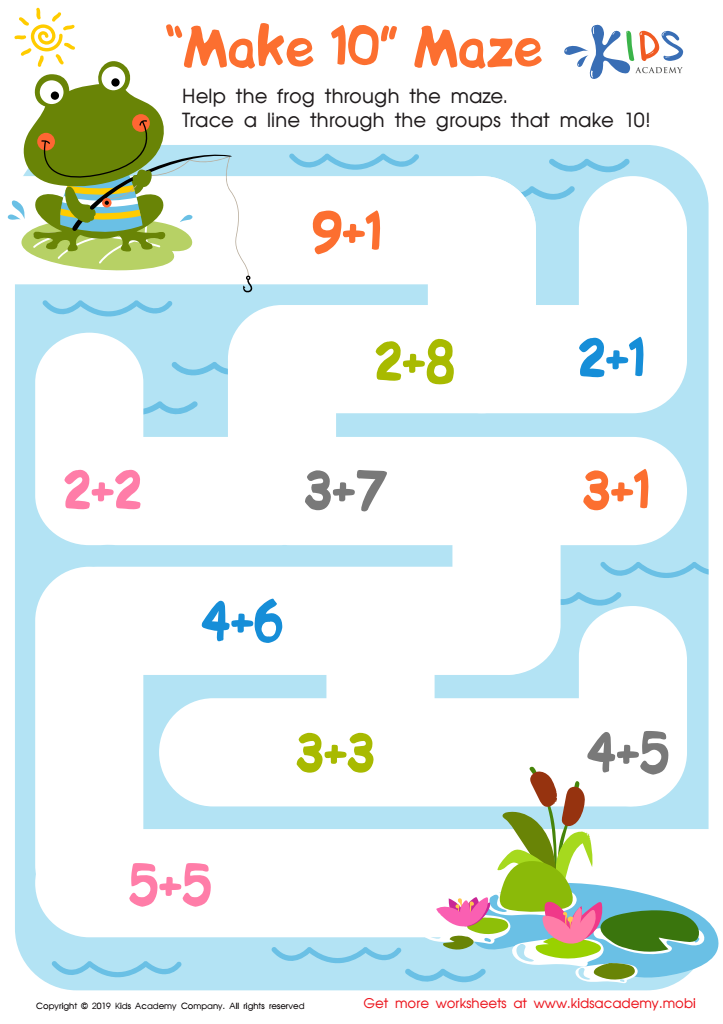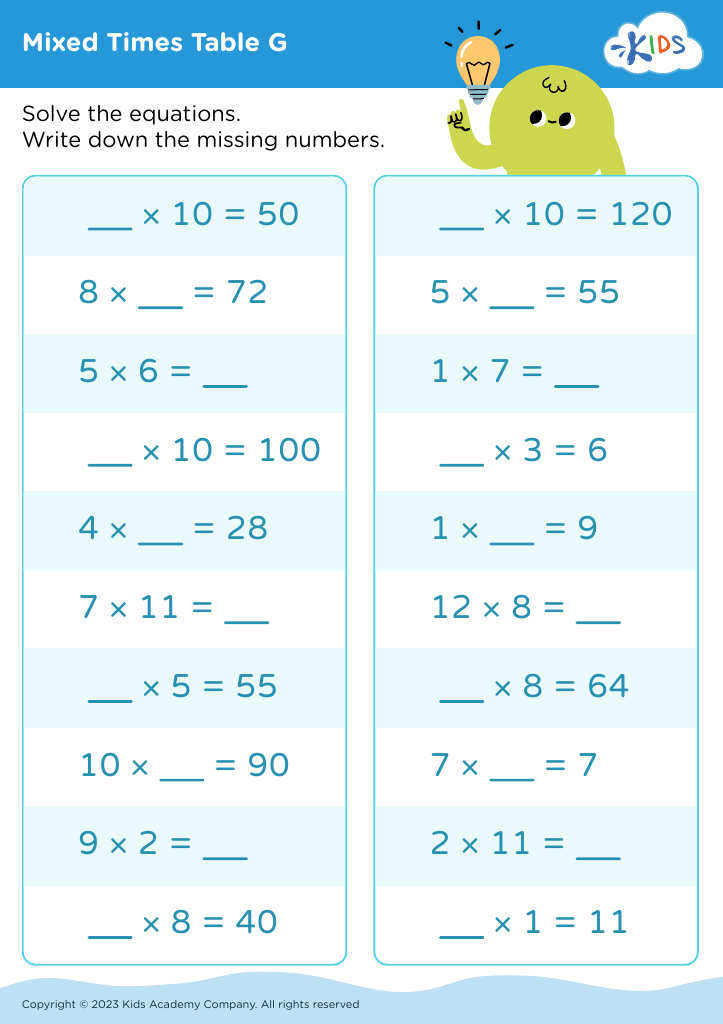Math fluency development Worksheets for Ages 6-8
3 filtered results
-
From - To
Boost your child's mathematical skills with our Math Fluency Development Worksheets for Ages 6-8. Designed by experts and made fun with engaging activities, these worksheets help children master addition, subtraction, multiplication, and division at their own pace. Focusing on building speed and accuracy, our resources ensure kids develop a strong foundation in math, making learning enjoyable and rewarding. Whether in classrooms or at home, each worksheet supports positive progress with a structured approach to math fluency. Enhance your child’s confidence and capabilities with practice materials that cater to young learners' unique needs. Help them succeed in math, every step of the way!


Addition Up To 10 Worksheet


Make 10 Maze Worksheet
Math fluency development in children ages 6-8 is crucial for several reasons, important for both parents and teachers to understand. Primarily, math fluency—the ability to perform mathematical operations quickly and accurately—lays the foundation for future academic success. At this age, students encounter basic arithmetic concepts such as addition, subtraction, and early multiplication and division. Early mastery of these skills enables children to tackle more complex mathematical problems with confidence as they progress in grade levels.
Moreover, developing math fluency also promotes critical thinking and problem-solving abilities. These skills are not only essential in math but are also applicable in everyday life and other academic subjects.
For teachers, focusing on math fluency can make classroom instruction smoother and more effective. When students are confident in their basic math skills, they require less time for reteaching and remediation, allowing for more advanced and enriching educational experiences.
Parents play a vital role as well by reinforcing what's learned at school. Engaging children in math-related activities at home fosters a positive attitude toward the subject and diminishes math anxiety, which can become a significant barrier to learning as children grow older.
In summary, math fluency development is a cornerstone of early education that benefits academic performance, cognitive skills, classroom efficiency, and lifelong learning attitudes.

 Assign to the classroom
Assign to the classroom












